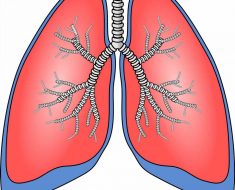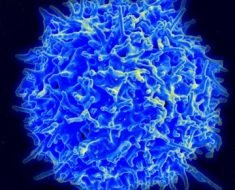A comprehensive meta-analysis shows that patients with cancer and COVID-19 have a higher risk of dying from COVID-19 than their cancer-free peers.
And contrary to some individual studies, younger age was associated with worse outcomes from COVID-19, with the risk of mortality decreasing in patients with cancer and COVID-19 as age increased.
When considering cancer types and treatments, patients with lung or blood cancers were at an increased risk of dying from COVID-19, and chemotherapy was associated with the highest risk of death from COVID-19, while endocrine therapy was associated with the lowest risk.
The analysis, by Carlo Palmieri, MBBS, PhD, with University of Liverpool, England, and colleagues, was published online May 9 in JAMA Network Open.
Conflicting Age Data
The growing body of evidence continues to show that COVID-19 infection increases the risk of more severe disease and death in people with cancer. However, the impact of tumor types, treatments, age, and sex on this risk remains less clear.
To investigate, Palmieri and colleagues reviewed 81 studies from 28 countries involving 61,532 patients with cancer, published through mid-June 2021. Among 58,849 patients with available data, 52% were male and the median age ranged from 35 years to 74 years.
Nineteen studies compared 3926 patients with cancer and COVID-19 infection with 38,847 controls. Overall, the cancer/COVID-19 population had more than a twofold greater risk of severe COVID-19 or death compared with controls (relative risk [RR], 2.12; P < .001). That risk decreased somewhat when patients were matched for age and sex (RR, 1.69; P < .001).
“This finding demonstrates a potential overestimation of the true risk to patients with cancer in studies that did not adjust for age and sex,” Palmieri and colleagues write.
Among 14 studies that provided data on age, younger patients with cancer and COVID-19 had worse clinical outcomes compared with age-matched controls. When evaluating the link between age and mortality, the relative risk of dying significantly decreased in patients with cancer and COVID-19 as age increased, compared with their cancer-free peers.
“Although it is true that older patients have worse absolute outcomes than younger patients, the [relative risk] data we found were highest for younger patients,” the authors note.
This finding, however, contrasts with results from another recent analysis published on May 4 in PLOS ONE, in which older age of patients with cancer was independently associated with increased risk for 30-day mortality from COVID-19.
This study also found patients with cancer and COVID-19 had higher risks for 30-day mortality (RR, 1.07) and hospitalization (RR, 1.04) compared with those without cancer. Recent cancer diagnoses elevated these risks for worse COVID-19 outcomes (RR, 1.17 for mortality; RR, 1.1 for hospitalization), especially among those with recent stage IV, hematological, liver, and lung cancer diagnoses.
In the meta-analysis, Palmieri’s team also found that tumor type matters. Patients with lung cancer (RR, 1.68) or a hematologic malignancy (RR, 1.42) faced the greatest risk of death from COVID-19 compared with patients with other cancers.
The findings that patients with hematologic cancers and COVID-19 are more vulnerable to poor outcomes aligns with prior evidence and is likely due to profound immune suppression, the authors explain. The risks associated with lung cancer are likely associated with age, reduced lung reserve, comorbidities, and cancer treatment.
Interestingly, breast cancer (RR, 0.51) and gynecological cancer (RR, 0.76) were associated with a lower risk of death from COVID-19, though the reasons are not clear, the authors note.
Treatment with chemotherapy had the highest overall case fatality rate at 30%, while endocrine therapy had the lowest at 11%; however, the researchers were not able to compare risks with different treatment modalities and by individual drugs.
Other potential limitations of the meta-analysis include the heterogeneity of definitions between studies, such as different definitions of COVID-19 severity across studies, variable follow-up times, and the fact that some trials were conducted prior to vaccine and antiviral drug availability.
Overall, though, Palmieri and colleagues conclude that the global effort to understand the implications of COVID-19 infection in patients with cancer has resulted in a “rich data resource” that “may be used to prepare the cancer research community for subsequent pandemics, which will inevitably occur.”
Support for this research was provided in grants and awards to various authors including grants from the UK Research Innovation–Department for Health and Social Care COVID-19 Rapid Response Rolling Call, Liverpool Experimental Cancer Medicine Centre, Cancer Research UK, and the Clatterbridge Cancer Charity and North West Cancer. Palmieri reported grants from Pfizer and Daiichi Sankyo, as well as personal fees from Pfizer, Roche, Daiichi Sankyo, Novartis, Exact Sciences, Gilead, SeaGen, and Eli Lilly outside the submitted work.
JAMA Netw Open. 2022;5:e2210880. Full text
PLOS ONE. 2022;17:e0267584. Full text
For more news, follow Medscape on Facebook, Twitter, Instagram, and YouTube.
Source: Read Full Article





